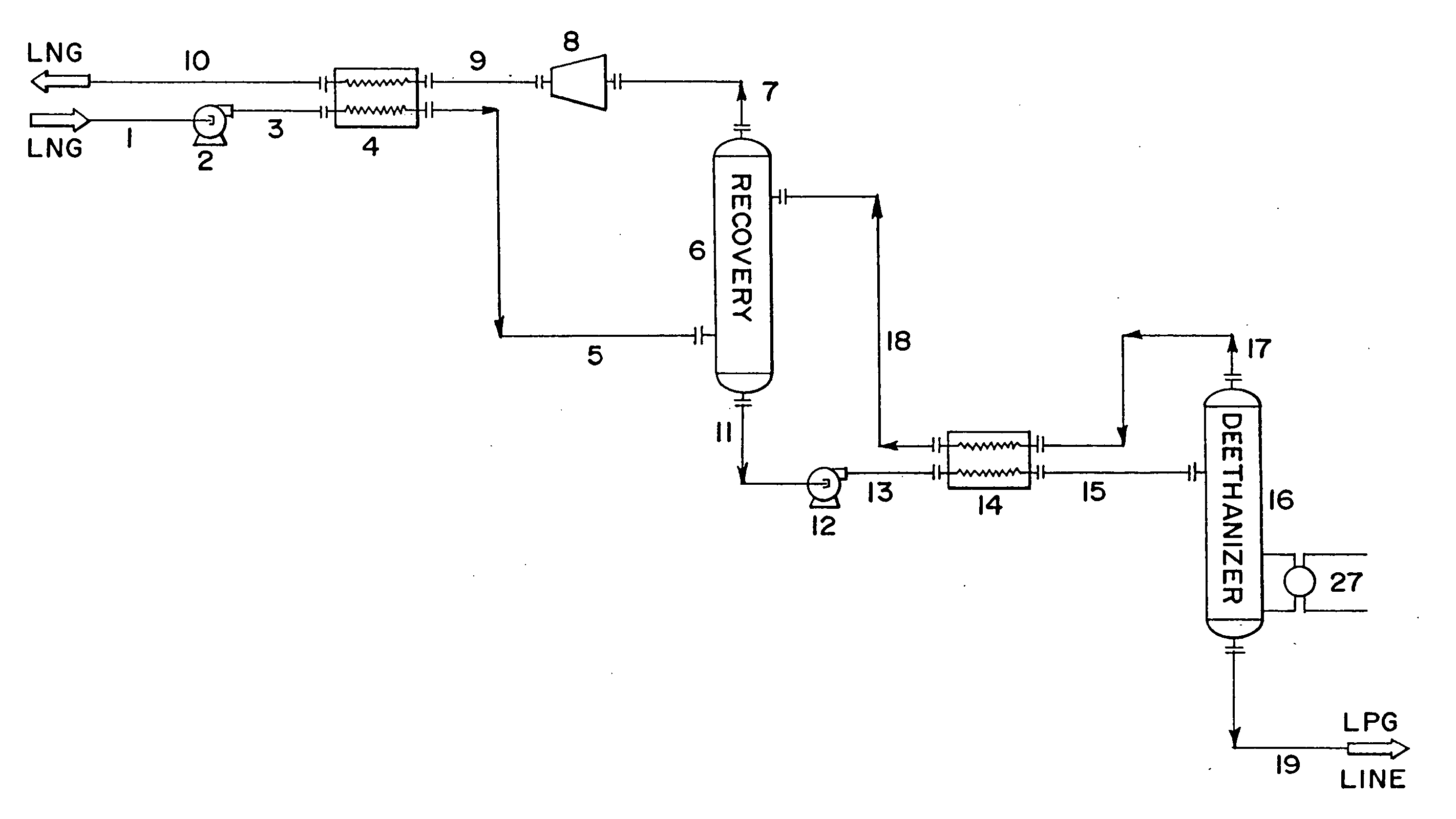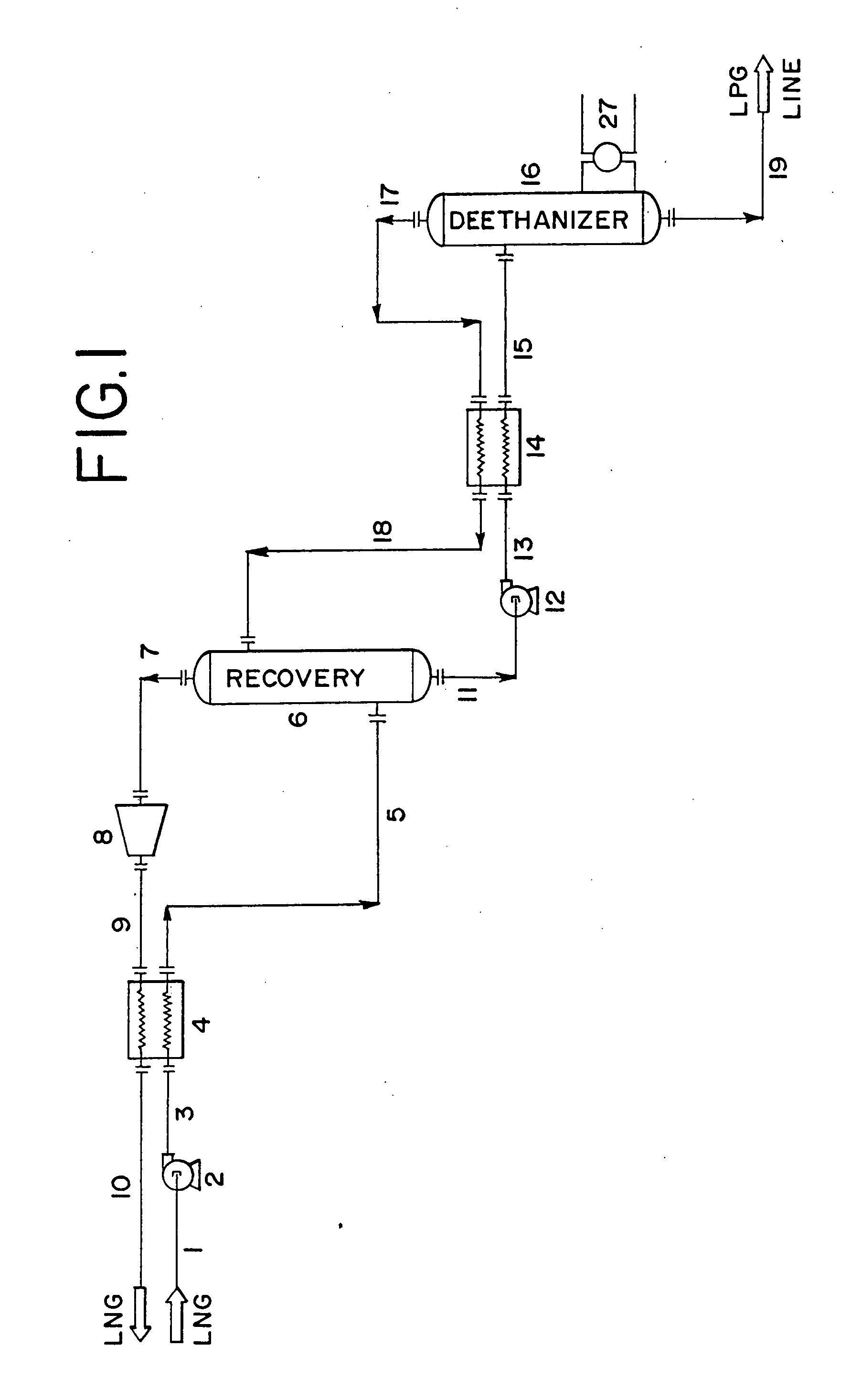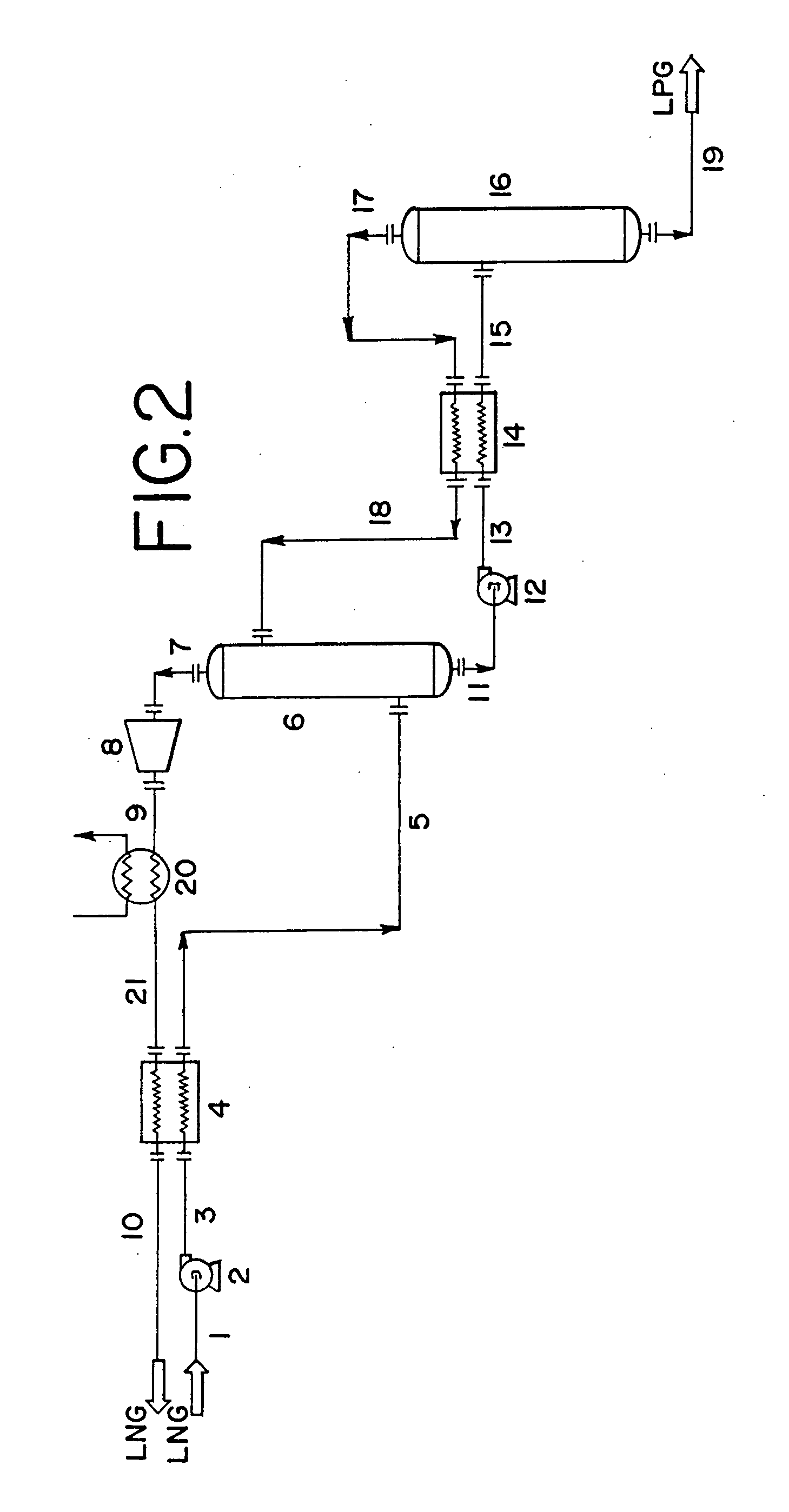Cryogenic liquid natural gas recovery process
a cryogenic liquid and natural gas technology, applied in the field of cryogenic liquid natural gas recovery process, to achieve the effect of reducing the overall energy and fuel requirements, avoiding the need for dehydration, and reducing the capital investmen
- Summary
- Abstract
- Description
- Claims
- Application Information
AI Technical Summary
Benefits of technology
Problems solved by technology
Method used
Image
Examples
Embodiment Construction
[0015] Natural gas liquids (NGL) are recovered from low-pressure liquefied natural gas (LNG) without the need for external refrigeration or feed turboexpanders as used in prior processes. Referring to FIG. 1, process 100 shows the incoming LNG feed stream 1 enters pump 2 at very low pressures, typically in the range of 0-5 psig and at a temperature of less than −200° F. Pump 2 may be any pump design typically used for pumping LNG provided that it is capable of increasing the pressure of the LNG several hundred pounds to approximately 100-500 psig, preferably the process range of 300-350 psig. The resultant stream 3 from pump 2 is warmed and partially vaporized by cross-exchange in heat exchanger 4 with substantially NGL-free residue gas in stream 9 exiting the process 100. After being warmed and partially vaporized, the resultant stream 5 from heat exchanger 4 is fed to recovery tower 6. Recovery tower 6 may be comprised of a single separation process or a series flow arrangement of...
PUM
 Login to View More
Login to View More Abstract
Description
Claims
Application Information
 Login to View More
Login to View More - R&D
- Intellectual Property
- Life Sciences
- Materials
- Tech Scout
- Unparalleled Data Quality
- Higher Quality Content
- 60% Fewer Hallucinations
Browse by: Latest US Patents, China's latest patents, Technical Efficacy Thesaurus, Application Domain, Technology Topic, Popular Technical Reports.
© 2025 PatSnap. All rights reserved.Legal|Privacy policy|Modern Slavery Act Transparency Statement|Sitemap|About US| Contact US: help@patsnap.com



